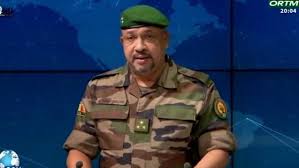As the war in Ukraine stretches into its third year, Ukrainian activist Peter Zalmayev is taking an unconventional diplomatic route—by listening.
Zalmayev, a well-known commentator and Director of the Eurasia Democracy Initiative, based in New York and Kyiv, is on a global mission: a year-long tour of 40 countries across Africa, Australia, New Zealand, and the South Pacific. His goal is to foster global understanding of the Ukraine conflict by creating space for dialogue in regions often excluded from mainstream geopolitical conversations.
This week, Zalmayev arrived in Tanzania, marking his 12th stop in Africa. His journey has so far taken him to Malawi, Zambia, Zimbabwe, Mozambique, Eswatini, Namibia, Botswana, Lesotho, and South Africa.
“African countries are uniquely positioned to help mediate this war,” Zalmayev told The Citizen. “Unlike many Western nations, they maintain open diplomatic channels with both Russia and Ukraine. That alone is a powerful opportunity for peace.”
Throughout his tour, Zalmayev has met with politicians, journalists, and civil society leaders. In Australia, he held discussions with former Prime Minister Tony Abbott and appeared on ABC TV and radio. In New Zealand, he met Deputy Prime Minister Winston Peters.
Across Africa, he has made appearances on SABC, Radio 702, Lesotho TV, NBC Namibia, Botswana TV, Eswatini TV, ZNBC, and Diamond TV. In Cape Town, he shared a public stage with Booker Prize-winning author Damon Galgut, bringing attention to Ukraine’s story through cultural diplomacy.
Zalmayev’s approach focuses on what he calls “media-driven diplomacy,” aiming to build mutual empathy through storytelling.
“This is about telling the Ukrainian story to communities who may only be seeing one side,” he explained.
He paints a stark picture of Ukraine’s current condition: more than 6 million people have fled, leaving a rapidly aging and shrinking population behind. Constant bombardments haunt daily life, and the country faces a demographic crisis that could take generations to heal.
“The battlefield has claimed thousands of lives. People are tired. They want peace,” Zalmayev said.
Still, he acknowledges that geopolitical factors complicate peace efforts—especially the return of Donald Trump to the U.S. presidency.
“Trump has made promises to end the war in a day, but in reality, his administration handed concessions to Putin that emboldened the invasion,” Zalmayev claimed. “The stakes have only gotten higher.”
He is also critical of the West’s long-standing but unfulfilled promises of NATO membership for Ukraine.
“They dangled NATO like a carrot. But never followed through. That sent the wrong signal.”
Rebuilding Ukraine, Zalmayev estimates, will cost over one trillion dollars, highlighting the immense humanitarian and infrastructural crisis caused by the war.
His visit is part of a broader shift in Ukrainian foreign policy, with the country opening 10 new embassies across Africa since the war began, in an effort to build alliances and counter Russian influence.
As he continues through 30 more African nations, Zalmayev remains optimistic.
“Africa is listening, and more importantly, Africa is speaking. We just need to keep the conversation going.”



